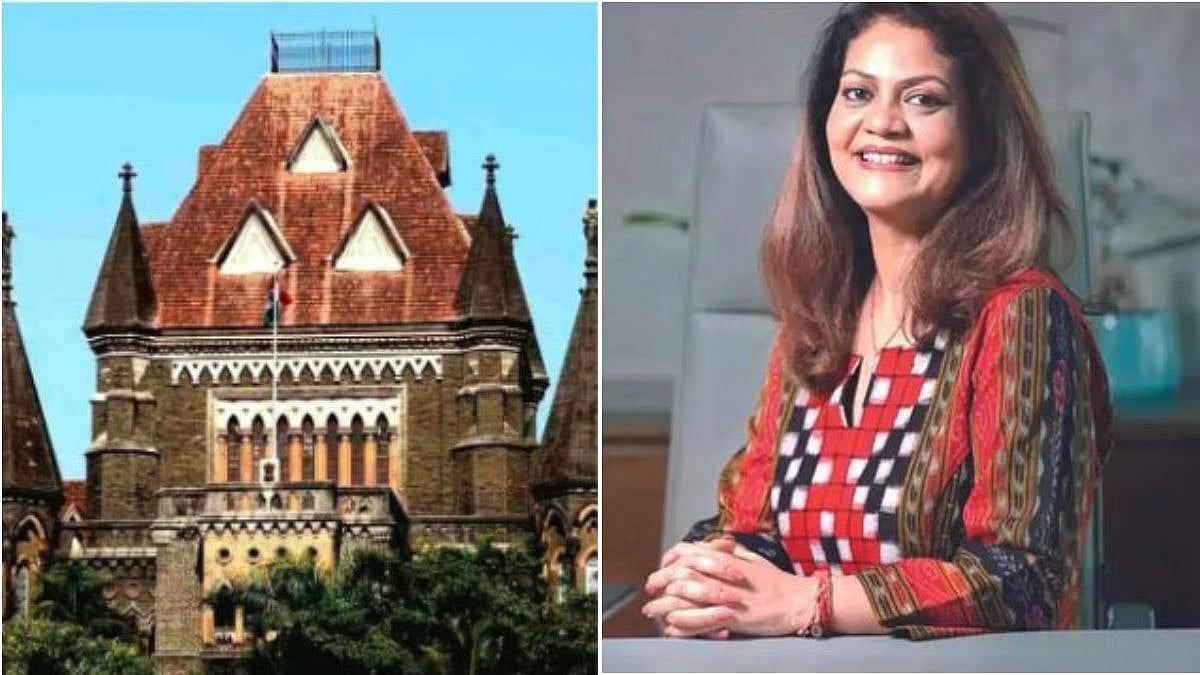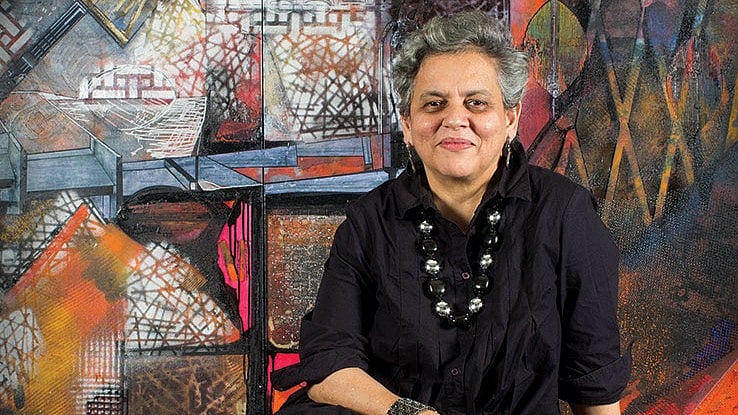A mother of two, Nidhi Pramod, had always been wary of the smartphone and preferred to keep the gadget at arm's length, and for obvious reasons. The humble device that could fit into her palm had knocked her children — Rehaan, 11, and Vivaan, 9 — off their feet in no time. Much to her chagrin, the duo preferred spending most of their waking up hours in its company. Annoyed and alarmed in equal measure at their gadget fascination, Pramod quickly sought intervention. "I was perturbed by the PlayerUnknown's Battlegrounds (PUBG) doing the rounds way back then. Their gaming addiction had caught my attention and set the alarm bells ringing. A new internet challenge crops up every day, from Momo to Keke, from Blue Whale to Tide Pod. Children are innocent and can end up falling for these online games, losing a lot in a bitter trade-off for momentary pleasure," warns Pramod, narrating how she could nip the problem in the bud way back in 2018. It was easier back then to cut short her kids' digital dalliance and save them from falling prey to Internet challenges.
Two years later, the pandemic struck, and the entire world was in lockdown. The schools went online and so did everything else, and there was no escape from digital exposure for Pramod's children and others of their ilk. "I have been on guard ever since, but even then, it is getting increasingly difficult for me to monitor my kids' screentime, control their addiction and keep a tab on their online adventures," says the Gurugram-based mother, narrating how like Ro in Decoupled, they have learned to erase their web history.
Why does it matter?
The issue of internet safety for children needs attention because they are the most vulnerable and can fall prey to online predators who will exploit their innocence for their gains.
But in today’s age when technology is integral to people's lives, it is seemingly difficult. "Children are growing up with technology all around, be it their entertainment or education. They are connected online more than ever, spending a large portion of their day in the online world. It could be for learning purposes, gaming or streaming, all of which have been exacerbated by the COVID-19 pandemic," says Sonali Kumar, a Navi Mumbai-based educator.
At times, overexposure or gadget addiction poses risks that can lead to cyberbullying or accepting internet challenges that can be dangerous for one's life. One can be duped by online scams, or fall into the trap of online predators who prey on young children, finding them through social networking sites, chat rooms, discussion boards, and take advantage of their innocence and going on to sexually exploit them.
"With the entire world moving online, children's exposure to the Internet has seen a significant rise. As a teacher, I can see a visible shift in children's behaviour, attitude, and learning in the pre-and post-pandemic days. We can love it, we can hate it, but we certainly can't ignore the influence of the Internet on children," adds Kumar.

A few teenagers and young adults are locked in the throes of their gadgets, vying for attention and social recognition in online media. They don't mind accepting online challenges, befriending a stranger, or even sharing personal details. "Likes and comments on their social media posts, shares and followers makes them feel wanted and desirable. Social media greatly influences a teenager or young adult's social acceptance. It meets the immediate need for gratification," explains Dr Keerti Panda, a clinical psychologist. However, she adds that a lot depends on the neuropsychological and socio-cultural aspect that makes them vulnerable to the Internet's woes.
There's scientific reasoning behind this behaviour. Teens and young adults are more likely to fall prey to digital monsters, accept and perform risky internet challenges, or fall prey to online scams because the brain's prefrontal cortex (the region responsible for control) is in the developmental stage. "In boys, this part of the brain has not fully developed until the mid-twenties, and in girls, it happens in the early twenties, which means that they will be attracted to some of these challenges without giving any thought to the potential outcomes and consequences," says Panda.

Low serotonin in the brain can also trigger feelings of emptiness, loneliness, low self-esteem, predisposing one to take up Internet challenges and spend a lot of time on mobile/Internet. "Children with fragile self-esteem and impulse dyscontrol, or those who have underlying depression, feelings of loneliness, substance use, or come from a disturbed family environment are the ones to watch out for," says Panda. An in-depth clinical assessment and a series of neuropsychological tests can give a clearer picture of the brain's functioning.
Digital detox
However, before the pandemic, parents could think of digital detox and opting for engaging ways to keep their kids off the gadgets, but now it doesn't seem easy. "Schools haven't reopened, and children are so dependent on their laptops and mobile phones to stay entertained and busy. Parents have to stay vigilant and alert always because one slight miss and kids will slip into the danger zone," says Pramod. She saw her younger one playing an online game and happily chatting with a stranger, sharing intimate details like name, age, school, parents' details, etc. Pramod made her little one watch an animated film Keeping Kids Safe on the Internet, a retelling of "The Wolf in Sheep's Clothing" fable, to teach her child that people online may not be who they seem.
The onslaught of digital invasion in their children's lives can have sure tell-tale signs, and parents need to watch out for those so that they can take quick action. "If you notice your child being withdrawn from family interactions, having disturbed sleep-wake cycle, or showing disobedience and disrespect, or having a disorganised lifestyle, increased stubbornness, irritability, angry outbursts, falling grades, neglecting academics or missing school, then don't ignore and seek medical help," suggests Kumar.
Dealing with digital addiction involves medical management that includes administering anti-obsessive, anti-depressant, antipsychotic drugs. Psychological management includes psychotherapy, behaviour therapy, cognitive behaviour therapy, and family counselling to help children overtly dependent on phones and social media strike a balance.
Keeping children safe
The matter needs a holistic effort by all the stakeholders – parents and carers, teachers and educators, researchers, civil society, decision-makers and law enforcement agencies.

Mohamed Mustafa, Founder & CEO, Developing Internet Safe Community (DISC) Foundation, a registered NGO initiated by a group of IT professionals social engineers from various parts of India and the Middle East, has been working for mass awareness for Safer Internet Day in India since the day came into being. This year on Safer Internet Day, DISC Foundation will be organising a couple of workshops and conducting sensitisation programs in India in coordination with international agencies. Expressing his concern at how the seemingly closed and private cyberspace prompts young and immature users to trust anyone, leading them to be exploited by wicked people, Mustafa says, "The issue of child abuse online is a worrisome trend in the Indian context because child pornography has risen drastically during the pandemic. People used to abuse children physically, and during the pandemic, the cyber predators are doing it online. The risks are up by 2,000 times in the online world. To mitigate this problem, we need to enhance the law, law enforcement as well as legal framework in the country." His foundation is working with a couple of agencies worldwide to bring the best practices to India and make the Internet safer for all, especially the most vulnerable of the lot, young children.
To add to it, lawyer Richa Srivastava says, "The Government had launched the cybercrime reporting portal, https://cybercrime.gov.in. This was the outcome of a PIL filed before the Supreme Court by a renowned Hyderabad based NGO, Prajwala. The portal makes it very easy to report woman and child-related cyber crimes and any other cybercrime. It also enables anonymous reporting."












